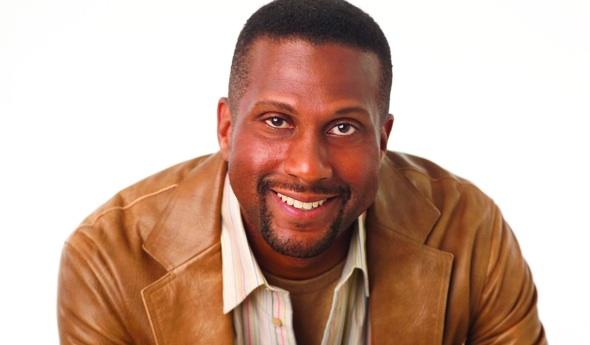Section Branding
Header Content
Tavis Smiley Highlights Georgia's Prison Reforms
Primary Content
PBS talk show host and author Tavis Smiley spent Thursday in Atlanta as part of his “One Great Idea” tour in which he highlights public policy successes around the country.
Georgia’s one great idea, according to Smiley, is the sweeping overhaul of its criminal justice system.
Between 1990 and 2011, Georgia’s adult prison population more than doubled to 56,000 inmates.
Until five years ago, the state was spending more than $1 billion a year. One in 70 adults was behind bars, and thousands more were under some form of state supervision.
Since then, laws pushed by Governor Nathan Deal have slashed Georgia’s incarceration rate and channeled money into programs that help non-violent offenders re-enter society and stay out of trouble.
Smiley joined me in the studio. Here's our conversation:
Bevington: Welcome.
Smiley: Rickey, good to be here thank you.
Bevington: What is Georgia doing in the justice reform sphere that is so innovative and effective?
Smiley: I think that fundamentally we are a nation in dire need of meaningful criminal justice reform. For a state that once had a not-so-good record of incarcerating -- over-incarcerating, I might add, African-American men and others -- they've made great strides. I was actually shocked that this was happening in Georgia. Shocked that it was happening under frankly a Republican governor. But there are many around the nation now who are looking to the state of Georgia for how to engage meaningful criminal justice prison reform.
Bevington: Why is this something that a Republican governor - Governor Nathan Deal - is spearheading?
Smiley: Well you're the two-time Emmy winner so you've covered this story more than I have, Rickey.
Bevington: I certainly have. His son is a drug court judge, I should say.
Smiley: And I think that's the reason. From all the stuff that I've read, I've never met Governor Deal, but from all the stuff that I read it was his son. It's amazing how when we come face to face with realities, we can politic in one way, but when we come face to face with the reality of a situation it fundamentally changes who we are and changes our views about people, about humanity, about the way the world works. I think his son gets great credit for convincing his father this was an issue worth taking up. Never mind the fact that it's not something we tend to see in the Republican category.
Bevington: This started in the 1980s as a left-leaning, civil rights issue. Now it's suddenly coming from Republican and conservative camps about fiscal responsibility. Talk about your perspective on that evolution.
Smiley: Sometimes, Rickey, we do the right things for the wrong reasons. I've found across the country that Democrats care about this issue because they see it as an issue of justice, social justice. And not all but certainly many Republicans are in favor of prison reform now because of fiscal concerns - they want to save money. I'm getting to the point that it doesn't much matter whether it's a conservative idea or liberal idea or a technocratic ideal. We're getting there. I just celebrate that that finally, for whatever reasons, people are starting to come to their senses about this issue.
Bevington: Before this "One Great Idea" tour is this an area that you have taken an active role in some way in this reform?
Smiley: It's something that I've cared about primarily because of the connection to poverty. There's no way you can talk about prison reform or just prison inmates and not make the link to poverty. I have done a lot of work on the issue of poverty. Which has so many tentacles including criminal justice. Poverty is threatening our very democracy. It's now a matter of national security, I believe. The numbers are not sustainable and in this country there's a highway into poverty but barely a sidewalk out. And you talk to so many people in Georgia and beyond who've found themselves in trouble over the years they start out in a life of poverty trying to do what they felt they needed to do to make ends meet. And so, you look at these persons who are in prison, and so many of the strikes that they have against them started so early in life. So I care about the issue because it's one of those many tentacles that offshoots the issue of poverty.
Bevington: Tavis Smiley, thank you for joining me.
Smiley: Thank you, Rickey.


